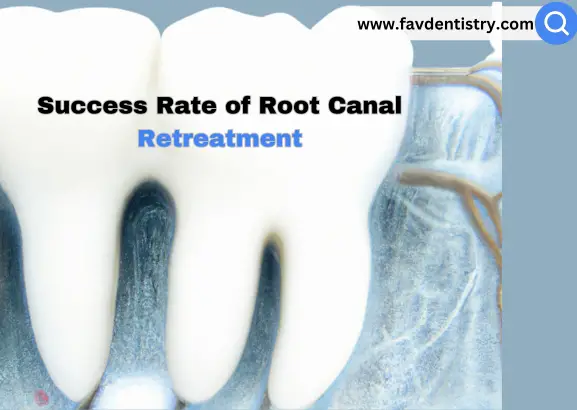Last Updated on 5 days by Dr. Michelle G. Brito
The very last thing anyone wants to hear is that they have an infected root canal. What can cause a root canal infection?
Several factors can contribute to a root canal infection. Poor dental hygiene is one of the main culprits, as it allows bacteria to build up and attack the teeth and gums. Untreated cavities can also lead to infection in the root canal, as decay can spread deeper into the tooth and reach the pulp.
In some cases, trauma or injury to the tooth can also cause a root canal infection. This could be from a sports injury, a car accident, or even just biting down on something hard. The trauma can damage the nerve and blood vessels in the tooth, making it more susceptible to infection.
An infected root can be highly uncomfortable and can cause considerable pain if left untreated. With the potential for a tooth abscess, it’s essential to know what causes a root canal infection in the first place so you can take steps to prevent it from happening. In this blog post, we’ll look at the common causes of a root canal infection, as well as discuss symptoms of infection that indicate immediate action should be taken and preventive measures you can take when necessary. This way, you’ll be more prepared in case anything does happen down the line!
What Is a Root Canal Infection?
Before we dive into the causes of a root canal infection, let’s first understand what it is. A root canal infection occurs when bacteria enter the innermost layer of the tooth, known as the pulp. The pulp contains nerves and blood vessels that keep the tooth alive. When these become infected, it can cause severe pain and discomfort.
Untreated cavities, trauma to the tooth, or poor dental hygiene typically cause root canal infections. It’s important to note that not all root canal infections are painful, and some may not show any symptoms at all. This is why regular dental check-ups are crucial in catching potential infections early on.
What Causes a Root Canal Infection?
The most common cause of a root canal infection is bacteria entering the tooth through an untreated cavity. This is why it’s essential to fill holes as soon as possible before they have a chance to reach the pulp and cause infection.
Another common cause of root canal infections is trauma or injury to the tooth. This can happen from something as simple as biting down on a hard object or from more serious incidents like sports injuries or car accidents. Trauma can damage the nerve and blood vessels in the tooth, making it more vulnerable to infection.
Poor dental hygiene is also a leading cause of root canal infections. Not brushing and flossing regularly allows harmful bacteria to build up on teeth, eventually reaching the pulp and causing infection.
Symptoms to Look Out For
If you’re experiencing any symptoms of a root canal infection, it’s vital to seek immediate dental treatment. These symptoms can include persistent toothache, sensitivity to hot and cold temperatures, swelling in the gums or face, and a discolored tooth.
It’s also important to note that sometimes, a root canal infection may not show any symptoms at all. This is why regular dental check-ups are crucial in catching potential infections early on.
Preventive Measures
The best way to prevent a root canal infection is to practice good oral hygiene. Brushing and flossing regularly can help remove harmful bacteria from the teeth, preventing them from reaching the pulp and causing infection. It’s also important to visit your dentist regularly for check-ups and cleanings.
If you participate in sports or other high-risk activities, consider wearing a mouthguard to protect your teeth from trauma. If you do experience any dental injury, be sure to seek immediate treatment to prevent further damage and potential infection.
The Anatomy of a Tooth
To better understand how a root canal infection occurs, it’s helpful to know the anatomy of a tooth. The outermost layer of a tooth is the enamel, which protects the inner layers from bacteria and damage. Underneath the enamel is the dentin, which is softer than enamel and contains tiny tubules that connect to nerves in the pulp. Finally, at the center of the tooth is the pulp, which includes nerves, blood vessels, and connective tissue.
When bacteria enter through a cavity or injury and reach the pulp, they can cause infection and inflammation. This can lead to severe pain and discomfort if left untreated.
The role of pulp and nerves in the tooth
As we all know, our teeth are necessary for chewing and breaking down food to aid digestion. But did you know that there is more to a tooth than just its hard outer shell? Beneath the enamel and dentin lies another vital component of our teeth – the pulp.
The pulp is a soft tissue found at the center of every tooth. It contains blood vessels, connective tissue, and nerves that help the tooth grow during development. Once a tooth has fully matured, the pulp’s primary function is to nourish and hydrate the tooth from within.
But what happens if the pulp becomes damaged or infected? This is where the nerves come into play. Nerves are crucial for sending signals to our brain when something is wrong with our body. In the case of a damaged or infected pulp, the nerves in our tooth will send warning signals, causing us to experience pain and discomfort.
Luckily, modern dentistry has advanced to a point where we can treat damaged or infected pulp through a procedure known as root canal therapy. During this procedure, the damaged pulp is removed, and the inside of the tooth is cleaned and sealed to prevent further infection. This allows us to save the natural tooth instead of having it extracted.
However, it is essential to note that prevention is always better than cure when it comes to our teeth. Maintaining good oral hygiene, avoiding sugary foods and drinks, and visiting the dentist regularly can help keep our teeth healthy and prevent any pulp-related issues from arising.
So, the next time you take a bite of your favorite food, remember to thank your pulp and nerves for their crucial roles in keeping your teeth strong and healthy. And if you do experience any discomfort or pain in your tooth, don’t hesitate to visit your dentist for proper treatment. After all, our teeth deserve the best care possible!
What Are the Risks of Leaving a Root Canal Infection Untreated?
Leaving a root canal infection untreated can lead to severe complications. The disease can spread to other teeth, causing further damage and potentially even leading to tooth loss. If the infection spreads beyond the tooth, it can cause an abscess, which is a pocket of pus that forms at the root of the tooth.
A root canal infection may also require more intensive and expensive treatment if left untreated, such as a root canal procedure or tooth extraction. It’s essential to address the issue as soon as possible to prevent these potential risks.
What Are the Signs and Symptoms of a Root Canal Infection?
As mentioned earlier, some root canal infections may not show any symptoms at all. However, there are some common signs and symptoms that you should look out for, including:
- Persistent toothache
- Sensitivity to hot and cold temperatures
- Swelling in the gums or face
- Discolored tooth
If you experience any of these symptoms, it’s essential to schedule an appointment with your dentist for prompt treatment.
The Importance of Professional Treatment
While some home remedies claim to treat root canal infections, it’s vital to seek professional treatment from a qualified dentist. Only a dentist can properly diagnose and treat a root canal infection, as well as provide preventative care to avoid future infections.
In most cases, treatment for a root canal infection involves a root canal procedure. This involves removing the infected pulp, cleaning and disinfecting the inside of the tooth, and then sealing it to prevent further infection. In more severe cases, a tooth extraction may be necessary.
Can an infection spread to the gums or other teeth?
Yes, an infection from a root canal can spread to the surrounding gums and even to other teeth. This is why it’s essential to seek prompt treatment for a root canal infection to prevent further damage and complications. In some cases, the condition may also spread to other parts of the body, causing severe health issues.
Tips for preventing root canal infections
- Practice good oral hygiene by brushing and flossing regularly.
- Visit your dentist for regular check-ups and cleanings.
- Fill cavities as soon as possible to prevent bacteria from reaching the pulp.
- Wear a mouthguard during high-risk activities to protect your teeth from trauma.
- Seek immediate treatment for any dental injuries or trauma.
By following these tips, you can lower your risk of developing a root canal infection and maintain good oral health. Remember, prevention is always better than treatment when it comes to dental issues. And if you do experience any symptoms of a root canal infection, don’t hesitate to seek professional treatment from a qualified dentist. Your teeth will thank you! So keep smiling and take care of your teeth to avoid any unwanted root canal infections in the future.
Conclusion
In conclusion, the pulp and nerves in our teeth play vital roles in maintaining healthy teeth. While root canal infections can be painful and uncomfortable, seeking prompt treatment from a dentist can help save your natural tooth and prevent further complications. Remember to practice good oral hygiene and visit your dentist regularly for check-ups to keep your teeth strong and healthy. Remember to consider the importance of your dental health and take care of your teeth to avoid any root canal infections in the future. Your smile is worth it! So, let’s give our pulp and nerves the appreciation they deserve for keeping our teeth healthy and strong. Keep smiling, and keep taking care of those pearly whites!






